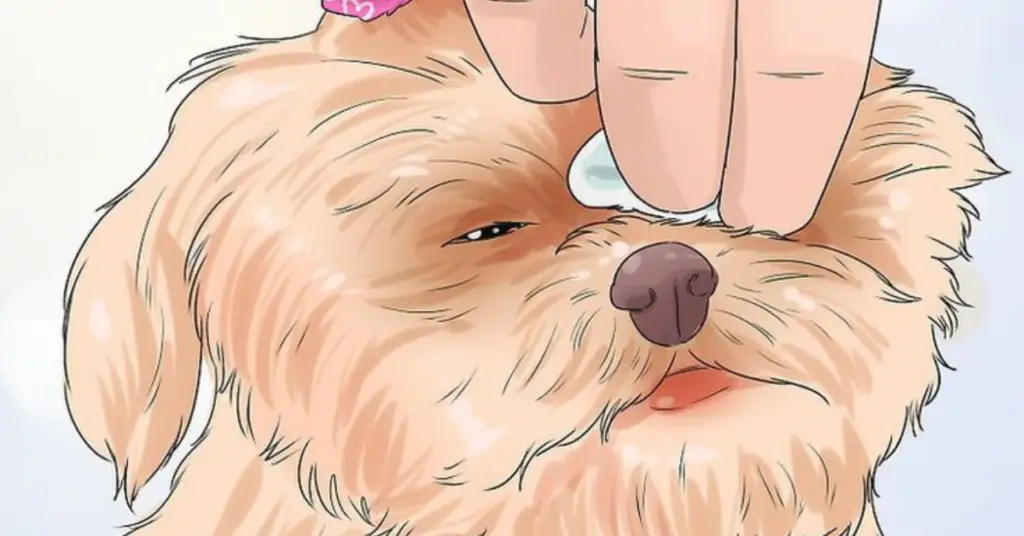
Regular vet checkups are essential for maintaining the health and well-being of your Shih Tzu. These small but robust dogs are prone to certain health issues that can be managed or prevented with routine veterinary care. Understanding the importance of these checkups can help you ensure that your Shih Tzu lives a long, healthy, and happy life. Here are seven compelling reasons why regular vet checkups are crucial for your Shih Tzu.
1. Early Detection of Health Issues
Catching Problems Early

One of the primary benefits of regular vet checkups is the early detection of health issues. Shih Tzus are prone to certain genetic conditions and other health problems, which can often be identified in their early stages during a routine exam. Early detection means that treatment can begin promptly, potentially preventing a minor issue from becoming a major problem.
Regular Screening
During a checkup, your vet will perform a thorough physical examination, which includes checking your Shih Tzu’s heart, lungs, eyes, ears, and skin. Blood tests, urinalysis, and other diagnostic tests may also be recommended to screen for underlying health issues. These tests can reveal conditions such as kidney disease, diabetes, or thyroid problems before they manifest as noticeable symptoms.
Preventative Care
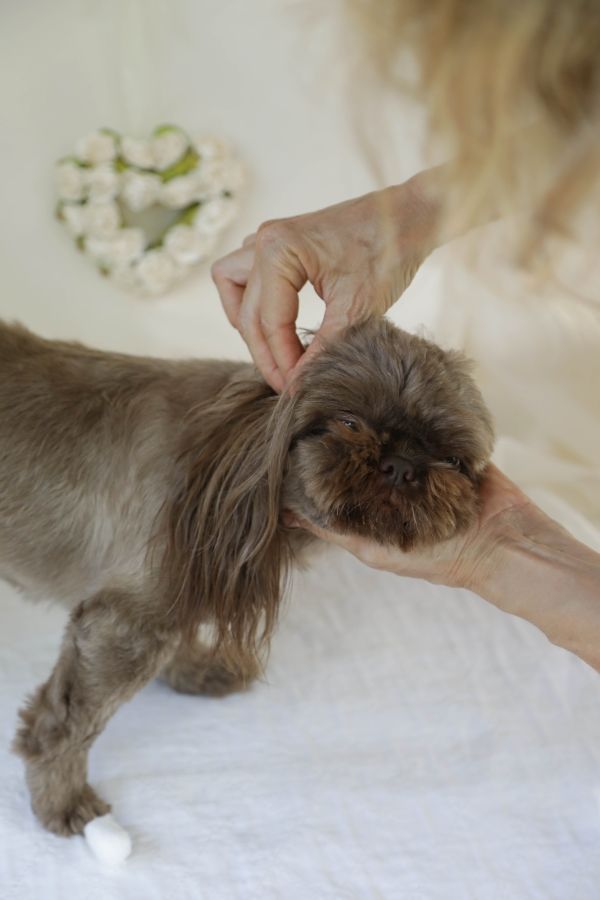
Early detection allows for preventative care, which is often less expensive and more effective than treating an advanced disease. For instance, dental checkups can prevent periodontal disease, which is common in Shih Tzus. Regularly scheduled vet visits ensure that any potential health concerns are addressed promptly, keeping your Shih Tzu in optimal health.
Monitoring Chronic Conditions
For Shih Tzus with chronic health conditions, regular vet visits are crucial for monitoring the progression of their disease and adjusting treatment plans as necessary. Conditions such as allergies, arthritis, or heart disease require ongoing management, which can only be effectively done with routine checkups.
Vaccination Updates
Regular vet visits ensure that your Shih Tzu stays up-to-date with vaccinations, which protect against serious illnesses like rabies, distemper, and parvovirus. Vaccinations are an essential part of preventative healthcare and help maintain your pet’s overall health.

2. Maintaining Dental Health
Importance of Dental Care
Dental health is often overlooked in pets, but it is crucial for their overall well-being. Shih Tzus are particularly prone to dental issues due to their small mouths and crowded teeth. Regular vet checkups include dental exams that can help prevent periodontal disease, tooth decay, and other dental problems.
Professional Cleaning
Your vet can provide professional teeth cleaning, which is essential for removing plaque and tartar that cannot be eliminated by brushing alone. This deep cleaning can prevent gum disease, which can lead to more serious health issues if left untreated. Regular dental care can significantly improve your Shih Tzu’s quality of life and longevity.

Early Detection of Oral Issues
During a dental exam, your vet can also detect early signs of oral cancer, broken teeth, or infections. These conditions can cause significant pain and discomfort if not addressed promptly. Early detection and treatment of dental issues can prevent more severe complications down the road.
Home Dental Care Guidance
Your vet can provide guidance on home dental care practices, such as brushing your Shih Tzu’s teeth and using dental chews or special diets designed to promote oral health. Following these recommendations can help maintain your pet’s dental health between professional cleanings.
Addressing Bad Breath
Persistent bad breath in dogs is often a sign of dental disease. Regular checkups allow your vet to address the underlying causes of bad breath and provide appropriate treatment. Keeping your Shih Tzu’s mouth healthy also helps to eliminate unpleasant odors, making them more enjoyable to be around.
3. Nutritional Counseling
Personalized Diet Plans
Shih Tzus have specific nutritional needs that can change throughout their lives. Regular vet checkups provide an opportunity to discuss your pet’s diet and receive personalized recommendations based on their age, weight, health status, and activity level. Proper nutrition is essential for maintaining your Shih Tzu’s overall health and well-being.

Weight Management
Obesity is a common issue in Shih Tzus, and it can lead to serious health problems such as diabetes, heart disease, and joint issues. During a checkup, your vet can assess your Shih Tzu’s weight and body condition, provide dietary recommendations, and suggest exercise routines to help manage their weight effectively.
Addressing Food Allergies
Shih Tzus can develop food allergies or intolerances, leading to symptoms such as itching, digestive upset, or ear infections. Your vet can help identify these allergies and recommend an appropriate diet to manage or eliminate symptoms. Regular checkups ensure that any dietary changes are monitored and adjusted as needed.
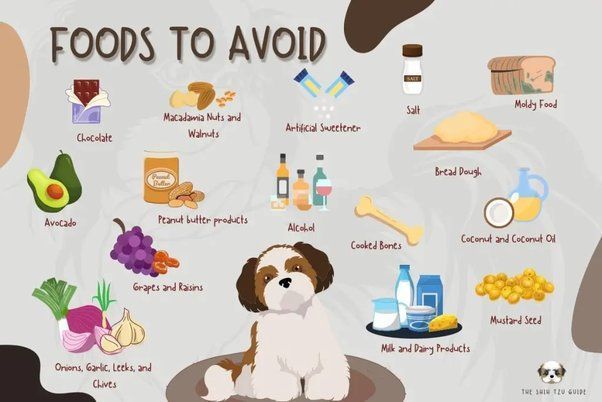
Supplements and Vitamins
In some cases, your Shih Tzu may benefit from supplements or vitamins to support their health. Your vet can recommend specific products and dosages based on your pet’s individual needs. Regular checkups allow for ongoing assessment and adjustment of these supplements to ensure optimal health benefits.
Hydration and Feeding Practices
Your vet can provide guidance on proper hydration and feeding practices, such as the best times to feed your Shih Tzu and how much water they should be drinking. These practices can help prevent dehydration and other health issues related to improper feeding habits.

4. Parasite Prevention and Control
Protecting Against Parasites
Parasites such as fleas, ticks, and worms can cause significant health problems for Shih Tzus. Regular vet checkups ensure that your pet receives appropriate preventive treatments to protect against these parasites. Preventive care is essential for avoiding the discomfort and potential health risks associated with parasitic infections.
Regular Testing

Your vet will perform routine tests to check for the presence of internal parasites such as heartworms, roundworms, and tapeworms. These tests are crucial for early detection and treatment, preventing more serious health issues from developing. Regular testing and treatment help keep your Shih Tzu parasite-free.
Tailored Preventive Plans
Your vet can develop a tailored parasite prevention plan based on your Shih Tzu’s lifestyle, environment, and health status. This plan may include topical treatments, oral medications, or other preventive measures to keep your pet protected year-round.
Managing Infestations

If your Shih Tzu does become infested with parasites, regular checkups allow for prompt diagnosis and treatment. Your vet can provide effective solutions to eliminate the parasites and prevent future infestations. Managing infestations quickly is essential for maintaining your pet’s health and comfort.
Educating Owners
Regular vet visits also provide an opportunity for educating pet owners about the risks of parasites and how to prevent them. Your vet can offer tips on keeping your home and yard free of pests and advise on the best products for protecting your pet.
5. Behavioral Assessment

Identifying Behavioral Issues
Behavioral issues can significantly impact the quality of life for both your Shih Tzu and your family. Regular vet checkups provide an opportunity to discuss any concerns you have about your pet’s behavior. Early identification of behavioral problems allows for timely intervention and management.
Addressing Anxiety and Stress
Shih Tzus can be prone to anxiety and stress, which can manifest in various ways such as excessive barking, destructive behavior, or aggression. Your vet can recommend strategies to manage anxiety and stress, including behavior modification techniques, environmental changes, or medication if necessary.

Training and Socialization
Proper training and socialization are essential for a well-behaved and happy Shih Tzu. During a checkup, your vet can offer advice on training techniques and recommend professional trainers or behaviorists if needed. Regular checkups ensure that any behavioral issues are addressed promptly and effectively.
Monitoring Changes in Behavior
Changes in behavior can sometimes indicate underlying health issues. For example, a normally active Shih Tzu becoming lethargic or a house-trained dog starting to have accidents may signal a medical problem. Regular checkups allow your vet to investigate and address these changes promptly.

Providing a Safe Environment
Your vet can offer tips on creating a safe and stimulating environment for your Shih Tzu. This includes advice on toys, exercise routines, and ways to prevent boredom and anxiety. A well-adjusted Shih Tzu is more likely to exhibit positive behaviors and enjoy a higher quality of life.
6. Vaccination and Immunization
Preventing Disease
Vaccinations are a critical component of your Shih Tzu’s preventive health care. They protect against a variety of serious and potentially fatal diseases such as distemper, parvovirus, and rabies. Regular vaccinations are essential for maintaining your pet’s health and preventing the spread of infectious diseases.
Tailored Vaccination Schedules
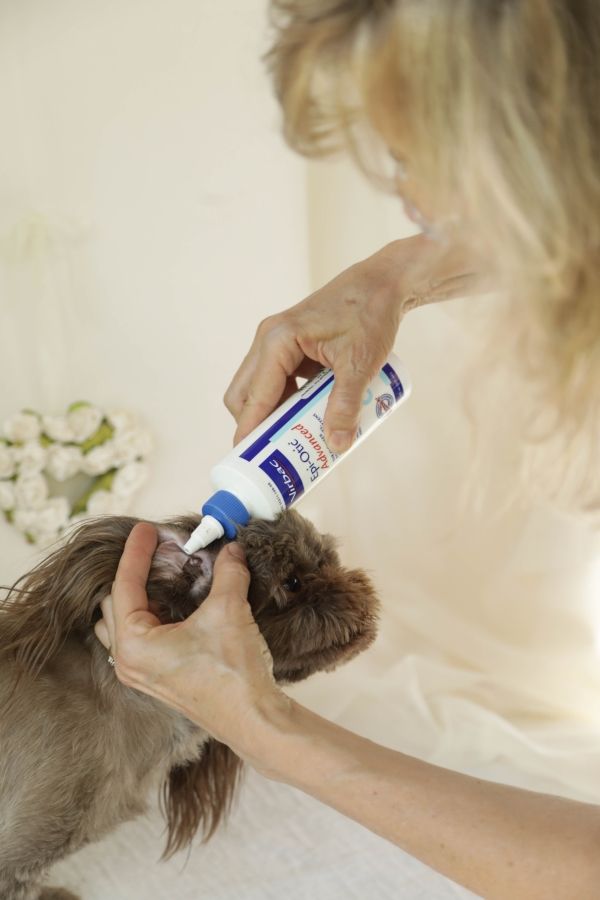
Your vet can develop a tailored vaccination schedule based on your Shih Tzu’s age, health status, and lifestyle. Puppies require a series of vaccinations to build their immunity, while adult dogs need regular boosters to maintain protection. Regular checkups ensure that your pet stays up-to-date with their vaccinations.
Managing Vaccine Reactions
While vaccines are generally safe, some dogs may experience mild reactions such as soreness at the injection site or mild fever. Your vet can monitor your Shih Tzu for any adverse reactions and provide appropriate care if needed. Regular checkups help ensure that any vaccine-related issues are promptly addressed.
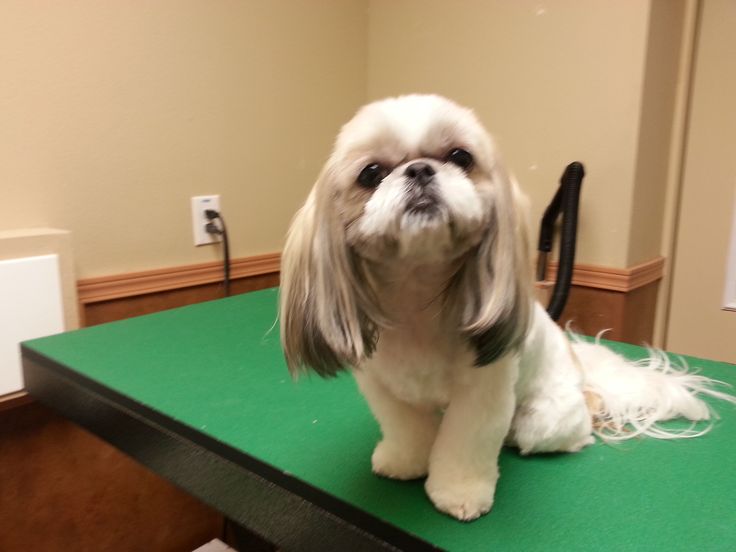
Protecting Against Emerging Diseases
New diseases and strains of existing diseases can emerge over time. Regular vet checkups allow your vet to stay informed about the latest developments in veterinary medicine and recommend additional vaccinations if necessary. Staying current with vaccinations helps protect your Shih Tzu from emerging health threats.
Ensuring Herd Immunity
Vaccinating your Shih Tzu also contributes to the overall health of the pet community by ensuring herd immunity. When a high percentage of pets are vaccinated, it reduces the spread of contagious diseases and protects those who cannot be vaccinated due to health



